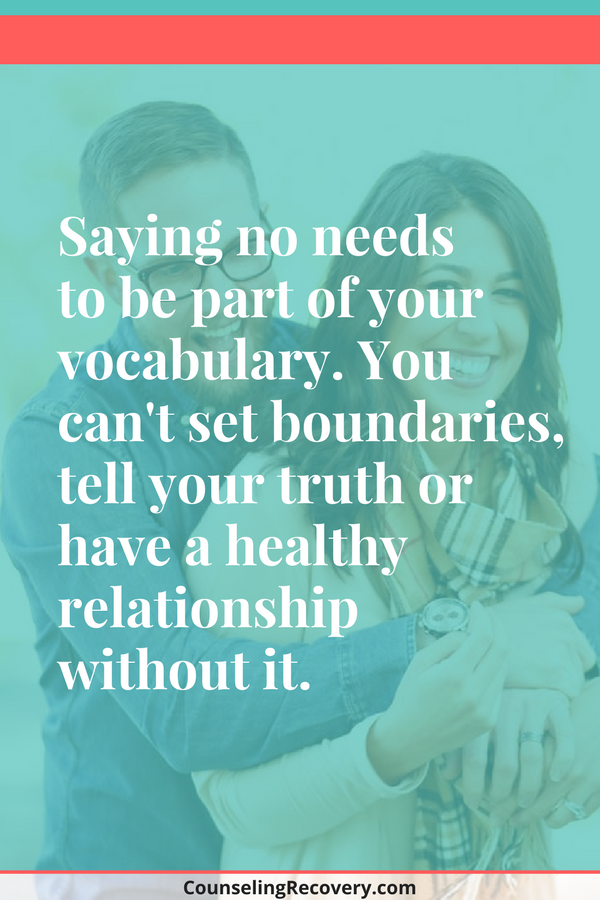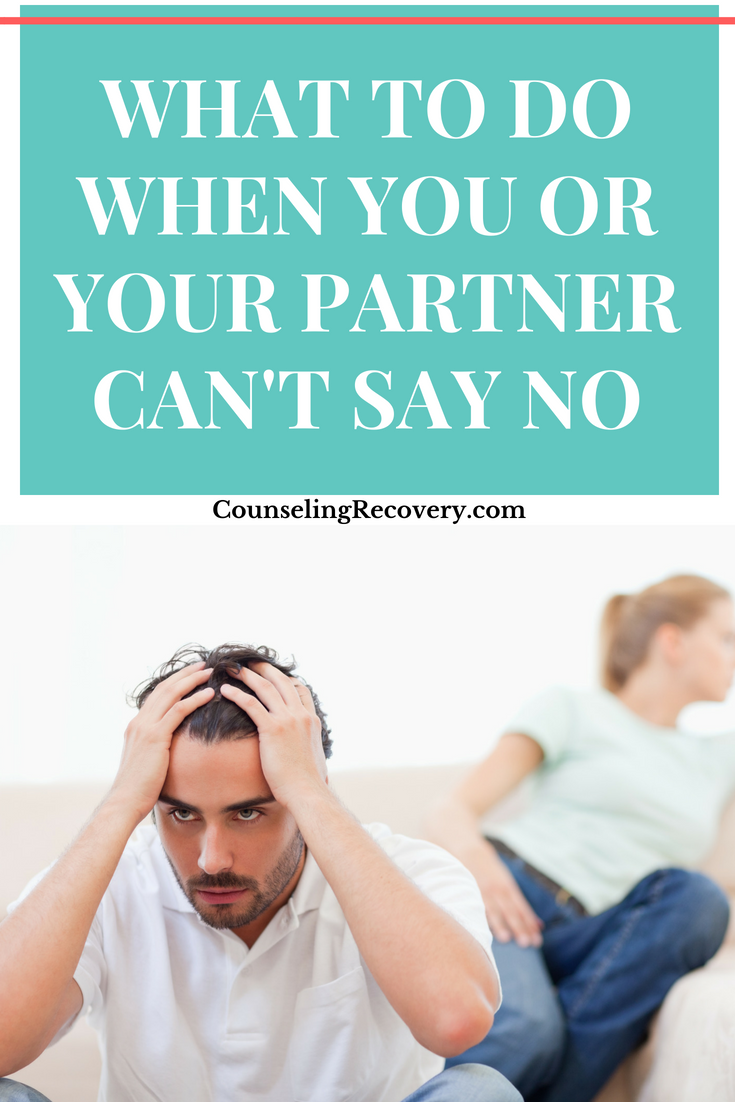What To Do When You (or Your Partner) Can’t Say No
When you or your partner can’t say no it's super frustrating.
Consider the case of Mike and Mindy. Mike asks Mindy for a favor. She says yes, only to come back with a snide comment later. He gets annoyed and doesn't understand why she just can't be honest. He walks away frustrated. He feels like he can't win because when she says yes, it comes back to bite him. After a while, he just gives up.
This blog provides tips for how to recognize the no and get your communication back on track.
When you can't say no, it causes problems. You can't be completely honest. Others think they know what you want but if you don't say it, they have to guess. Maybe you (or your partner) say yes to avoid a fight. You want to say no but you just can't. You assume that it'll make your partner angry and you really don't want that.
Here's a scenario you might relate to:
Mindy asks Mike about planning a vacation. She suggests Lake Tahoe, and he answers with a silent "ahha", so she thinks it's a go. She starts making plans. She's super excited until two weeks before the trip when she reminds him and he answers with a heavy sign. Here's how it goes.
She asks "What's wrong?"
He says "Well......I kinda wish we weren't really going there. You know I don't like hiking."
"What?????"--- huge argument starts. She's super frustrated that her partner misled her. She's thinking, why can't he just tell the truth?
Why Is Saying No So Tough?
There are a lot of messages floating around about what it means to say no. Some of us learned in childhood that saying no was selfish, while others didn't realize their impact until relationships started failing.
Here are some messages that you may have heard about saying no:
It's not nice to say no.
You're selfish and ungrateful if you say no.
What gives you the right to say no to me?
Saying no means that you think only about what you want.
You never say no to family.
If you say no, your family/partner/boss will be upset.
These beliefs shape how you do relationships. Without the ability to say no, you can't set healthy boundaries. Over time, you feel like a doormat. You may struggle with resentment or depression. You assume that you'll never get what you want so why bother? But as a result, you don't feel understood in your relationships.
Tip - Identify beliefs that get in the way of saying no. Often they aren’t even yours so why keep them?
The Codependent Dilemma
Saying no is difficult. Most of the time it's not done intentionally. It happens out of fear - False Evidence Appearing Real. You're afraid to upset the other person. The need to be liked overshadows the need to speak up.
You think it's not okay to ask for what you want so you say yes to avoid an argument. But is that working for you? If not, the next step is to recognize the no so you can start having real conversations.
Tip -There comes a time when enough is enough. Let yourself ask for what you want. If you keep denying your no, nothing will ever change. In fact, it gets worse.
How to Recognize the No
Everyone has a "tell" - a sign that they're holding something back. Learn to recognize that sign because it's probably their no. Here are a few examples:
A hesitation or deep sigh
A certain statement like " Well, if you want to" or "Sure, whatever"
A grimace or frustrated facial expression
Not answering or responding in silence
Once you know the sign - check it out with your partner. "It sounds like you mean no but are saying yes, is that right?" Own it as your assumption because otherwise it's comes across accusatory.
For instance, my husband pointed out that when he asks me something I typically answer with a "we could" instead of a yes. I had no idea! My intention was to be open - but I could see his point. Finding the grain of truth in the feedback kept our communication on track. If handling feedback is difficult read How to Handle Feedback.
Tip: Always check it out because making an assumption can provoke an argument.
Be Supportive
It takes courage to tell your truth. Support each other to be honest about your limits. When you think your partner isn’t being truthful with their “yes” gently check it out. Let them know that you’ll support them even if it’s a no.
Remember, this is not done on purpose. Usually there's a story behind it that traces back to some important part of their history. Maybe they were made to feel guilty or always compared to a sibling. When you're fighting to matter in your own family, you'll do almost anything to get approval.
Final Thoughts
There is such freedom in being able to say no. You'll have less resentments because you're taking care of yourself. Many notice a difference in their stress level. Saying no needs to be part of any relationship. You can't have a healthy relationship without it.
When you recognize a no, encourage them to take care of themselves. It's always okay to say no!
Get my free relationship checklist! Help me help you assess what’s working and what needs to be fixed!



